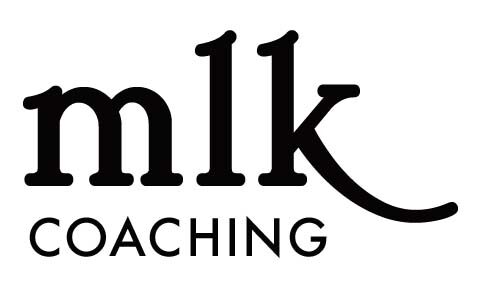
I Reached Burn Out. Here’s my story…
Four years after my teenage daughter Jessica broke her neck it happened to me. At the time I thought burn out only happens to people who aren’t very aware, people that aren’t “strong”, people that can’t handle life. Then one February morning I woke up and started crying…for no apparent reason, or so I thought. And I couldn’t stop crying. So I called in sick to work. The next day the same thing happened. The tears spilled out and as hard as I tried I couldn’t get them to stop. Again I called in sick saying I had the flu. Why is it so hard to say you are struggling mentally? That you have anxiety, stress or depression. Somehow saying I had the flu was much easier than saying I barely could get out of bed. That I didn’t care about anything or really anybody, that I couldn’t face the world. Day 3 came and again so did the tears; my body ached all over not from the flu but from the emotional stress I was feeling. I gave myself a pep talk and said I should get over it, got dressed to go to work…and then the tears returned and so did the overwhelm, and then the anxiety. And I couldn’t do anything about it. I was exhausted and still didn’t really get why. I had never considered myself an anxious person. The simplest decisions couldn’t be made.
At this point I decided I better take the rest of the week off and called my boss saying I would be back Monday. The rest of the week passed with me in a semi zombie stage. I was still making meals for my family but doing the bare minimum. Come Saturday I thought maybe making a hair appointment and getting out of the house would help me snap out of it. I was convinced that it was just a case of the blues and that if I was strong – and I knew I could be – I could get back to my normal routine. No luck. I couldn’t face the 45 minute drive to the hairdressers; a drive I had done many times before. That’s when I knew something was really wrong. I consider myself a pretty capable person and making an appointment and getting my hair cut was a simple thing I did all of the time…yet not this week. The weekend passed in a fog, my senses dulled and my ability to do much of anything was pretty much gone. Monday came. I got out of bed but the thought of returning to work – or even getting in the car to go to work – created major anxiety. I called my boss once again saying I was still sick with the flu and I wouldn’t be in.
At this stage I realized I wasn’t going to just bounce back. It wasn’t just a “blue” or “off” day I was having. This was serious and it crossed my mind that I was mentally really not well. I faced the fact that after four years of being by the side of my daughter as her primary caregiver, during her recovery and in her adjustment to a new life living with a spinal cord injury, I now needed to take some time off. I still hadn’t named it as burn out, but I knew myself enough to know that something was really wrong with me. The normal daily things I did were either not done or done poorly. I lacked focus and was in major overwhelm. My family started wondering why I wasn’t going to work. Normally an open book I didn’t want to talk about it…not even to my closest friend.
Finally, I visited my pastor. He put it into words. You are burned out. You have been Jessica’s primary caregiver giving totally of yourself, and now you have no more to give. Your resilience is gone, your bucket is empty. I couldn’t figure out how this could occur when I had managed pretty well after Jess had been injured. I had taken 6 months off to be by her side, then returned to work believing I was “balancing” it all – or so I thought. Pastor Durwin said sometimes it can take years before these things affect you. He was right. I was still partially in denial, deciding to myself that a couple weeks off work would bring me back to normal. He urged me to think about taking a few months off and to focus on looking after me. Months sounded incredulous – and of course I was still in denial about how burned out I really was. Even with my family I wasn’t being honest about what was really going on. I feared my family might blame themselves somehow so I tried to protect them too. He also encouraged me to make an appointment with my family doctor.
My doctor confirmed my burn out and anxiety – a side effect in my case of the burn out. He concurred with Pastor Durwin to take a few months off. At first I was hesitant, worried about the judgement I might face from family and friends. In the end I realized if I didn’t look after myself things might worsen and I wanted to be around long term for my family. Fortunately, I could go on stress leave from work. And so began the mending. I took long walks, read books, something I hadn’t done in a long time, had visits with friends and slowly started to feel better. Three months later I returned to life and to work, feeling rejuvenated.
Since then I have become a coach and have coached women in various stages of burn out. My experience with burn out, though not so much work related has helped me better understand the symptoms of burn out and stress induced sicknesses.
Here’s what I’ve learned…
Burnout has many stages and symptoms vary from person to person.
Signs include:
Serious overwhelm – when everything you think of doing seems just hard…so you do nothing, or only the bare minimum.
Lack of decision making – decisions of any kind don’t come easy…instead you keep mulling over and over what to do. Your anxiety can heighten and even the smallest decisions are agonizingly hard.
Reduced, little or no motivation. Normal things that made you happy don’t do it for you now. You may not even want to get out of bed. Depression.
Physical Symptoms: Headaches, neck and back pain, digestive problems, physical sensation of exhaustion, feeling of overwhelm, tears.
Sleep: troubles sleeping or difficulty going to sleep or waking up in the middle of the night and not being able to return to sleep.
The Mayo Clinic states burnout comes in various forms and can be caused by: (1)
•Lack of control: This is an employee’s lack of influence on decisions that affect their job. Examples include hours of work, which assignments they receive, and an inability to control the amount of work that comes in.
•Unclear job expectations: Examples include uncertainty over what degree of authority an employee has and not having the necessary resources to complete work.
•Dysfunctional workplace dynamics: Examples include working with an office bully, being undermined by colleagues or having a boss who micromanages your work.
•Mismatch in values: If personal values differ from the way an organization does business or handles employee grievances, it will wear on employees.
•Poor job fit: An employee working in a job that doesn’t fit their interests and skills is certain to become more and more stressed over time.
•Extremes of activity: When a job is always monotonous or chaotic, an employee needs constant energy to remain focused, leading to energy drain and job burnout.
Having lived through burn out and seen my clients in various stages of burn out here are some of my recommendations on what to do if you are experiencing signs of burn out:
•Seek professional help: Start with your family doctor who can rule out any other causes of your symptoms (or contributing causes). Enroll with a counsellor, coach or therapist to help you work through the root causes and develop a course of action.
•Reach out to friends and/or family: your support system can be wonderful – but you have to ask for help and tell them what’s going on for you. Ask for what you need…maybe it is help with the kids, or an empathetic listening ear.
•Exercise: research indicates that physical exercise can be helpful in reducing some of your anxiety and stress experienced with burn out.
•Self-care: Make time for you. Depending on your stage of burnout this might mean taking time off as I did, and/or making time for things you have enjoyed in the past: art, music, seeing a movie, reading, prayer, meditation, journalling, time with your pet or others.
It’s taken me a very long time (nearly 8 years since I experienced burn out for the first time) to share this part of my life, and I think that’s because of a couple reasons. Perhaps the biggest being the fear of judgment; however, I’ve reached the stage in my life where I feel confident enough in myself and my experience that I can share my journey and hopefully help a few people that are currently experiencing burn out, or are fast approaching a burn out, recognize the signs and know that they are not alone.
Another reason I have spent so much time ruminating over this piece of my past is because it makes me vulnerable. As women, we are constantly battling the societal assumption that we are weak and overly emotional, and sometimes being vulnerable feels like weakness. I can now confidently say – that is a lie. Being vulnerable is one of the most powerful things you can do. It takes strength and courage and means that you are willing to admit that you aren’t perfect but you are open to growth. I no longer want to hide this piece of myself. If people judge me, that is their choice, if they think I am weak that is their struggle. I care about myself enough to be kind to myself, and I hope that each and every one of you will do the same.
(1) Mayo Clinic, “Job burnout: Understand symptoms and take action” (2008) http://www.mayoclinic.com/health/burnout/WL00062(accessed January 11, 2010).
Mary Kruger is an Internationally Certified Business & Career Coach. She inspires people to reach their potential and goals through positive support, challenge & accountability. Send her an email to set up a complimentary session to discuss how Mary can support you with reaching your goals. Email: mary@mlkcoaching.com

















